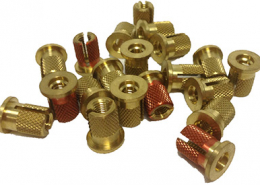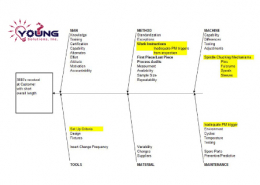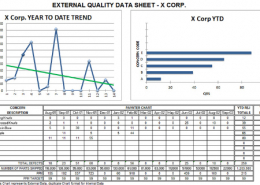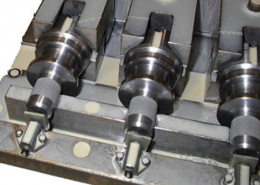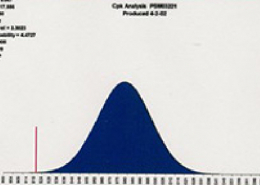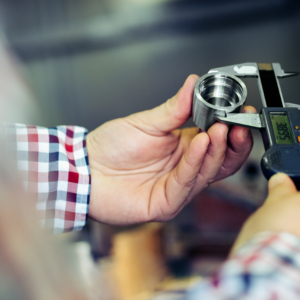Manufacturing Dictionary
DESIGNED BY: Young Solutions Inc.
A dictionary of common manufacturing terms is provided below for your convenience.
A2LA Testing and calibration laboratory. A2LA certification is a typical requirement in the automotive industry.
AIAG Automotive industry action group
APQP (Advanced Product Auality Planning) originated in the automotive industry and is essentially a methodology combining multiple quality tools product launches are successful.
BOS (Business Operating System) is unique from a QOS in that a BOS considers additional aspects relating to a business.
Cost of Quality is associated with the study of quality cost and payback ratios.
DFM (Design for Manufacturing) is a conscious activity during the design process to consider not only the final attributes of the finished part but also the ease of manufacturing of the part itself.
DFMEA A design FMEA deals with the attributes and factors associated specifically with the design of the product.
DOE (Design of Experiments) There are many approaches which may be utilized in a designed experiment, but in its most simplistic form a designed experiment develops a hypothesis and tests the results. Several different approaches and methods like those of Taguchi have been popularized as being a designed experiment. However this is somewhat narrow in scope and approach.
FMEA (Failure Mode and Effects Analysis) is a methodology to evaluate a process from beginning to end and associate risk factors with each of the operations. Failure modes are evaluated in terms of severity, occurrence, and detection. Corrective actions are considered based upon the results.
GDT ANSI 14.5 Y This standard helps to further commonize geometric dimensioning and tolerancing on the prints and drawings. It moves towards a higher utilization of geometries and symbols to describe features and tolerances. In organizations where the standard has been embraced it has provided gains in efficiency and quality of drawings. Similarly it creates issues for organizations unfamiliar with the standard as the symbology is in essence a foreign language.
OEE (Overall Equipment Effectiveness) considers the availability of equipment, production rate, and quality to produce a monitoring metric for a manufacturing process.
PFMEA (Process Failure Mode and Effects Analysis) is similar in nature but focuses more on process instead of product.
PPAP (Production Part Approval Process) is an automotive format utilized by suppliers for production part approval prior to a launch.
PPM Parts Per Million defects
QOS Quality Operating System
QS9000 is a technical standard commonly associated with the big three and AIAG, also known as the automotive industry action group.
Quality Circles was a methodology first attempted in United States in the 1970s. It entailed utilizing a group of individuals to solve issues on the floor. Historically they were misunderstood and met with limited success.
Root Cause is the most primary cause of a particular result. Often times peripheral causes are addressed when a quality problem appears, however without addressing the root cause the problem will appear again.
Six Sigma is a quality term popularized with an associated group of quality improvement methodologies. The name refers to a six standard deviation process spread considered highly desirable for near zero defects results.
SMED (Single Minute Exchange) of dies deals with optimization methodologies and quick change style tooling. By focusing on reduced set up time more time becomes available for production activities. Reduced set up time also helps to facilitate short run methodologies, and enhanced flexibility.
SPC (Statistical Process Control) is most commonly associated with production/process control charts.
TOPS (Team Oriented Problem-Solving) was the name associated with Ford’s 8D corrective action process when it was first launched.
TPM (Total Productive Maintenance) utilizes systems and metrics to ensure maintenance is performed at a high level. Things like OEE and production yields are common metrics to evaluate maintenance performance.
TS16949 is a technical specification associated with ISO 9000. It attempted to commonize requirements for the automotive industry. About 30{0f1f5cee2cf702555d7a06107e0a24726bf4475511e3cbd943df74ee38f28692} of automotive companies actively use this specification.
Variation is a concept related to the inherent variation of all processes and parts.










